Steady Work in Palm Springs
Frank’s first gig in Palm Springs was a big one; two weeks at the Chi Chi, playing with Bill Alexander’s house band, backing Hollywood great Rhonda Fleming’s new show. In 1960, there was no swankier venue in Palm Springs than the Chi Chi. It was the “in” place, a favorite of the Hollywood stars, and the likes of Bing Crosby, Bob Hope, and Frank Sinatra were frequent patrons.
When the Chi Chi gig ended, bandleader Tony Rose snapped Frank up to join his band at The Tennis Club. On a frigid day in February of 1960, my mom, my sister Lise, and I were finally able to leave Reno behind and reunite with Daddy in warm and sunny Palm Springs. We stayed at The Tennis Club for a week or so while we got situated. With Daddy working steadily now, we made a new start. The family’s fortunes were looking up.
The Elvis Sessions, or, How Elvis Bought Us a New Car
While working at The Tennis Club, Frank was approached to record a session with Elvis Presley at RCA in L.A. As children, we’d never heard of Elvis and didn’t pay any attention when Daddy was away for three days straight. But we were certainly thrilled to wake up one morning to find a new (for us) black and white station wagon parked in the driveway! Daddy chattered happily away about the car and a sunglasses swap he’d made with Elvis after they had admired each other’s shades.
Years later, I was contacted by Norwegian music historian Jan-Erik Kjeseth who had a special interest in Elvis Presley. He wanted to interview my mom about some unanswered questions during the G. I. Blues recording sessions in April, 1960. Frank Bode was on some call sheets but not others. What happened? Mommy didn’t want to talk to him, acting uncharacteristically shy, so I acted in her stead, going back and forth from Jan-Erik’s questions to her memories, to the session notes and to other interviews recently available on the internet.
The full story, as we now know it, is available here in this new English translation of Jan-Erik’s full article, The Story of the Danish Drummer on the G. I. Blues Sessions: Frank Bode.
Jan-Erik’s story notes that Daddy was burning the candle at both ends. He was playing for bandleader Tony Rose five nights a week at The Tennis Club, from 10pm to 2am, sleeping for two hours, then driving straight to LA for morning sessions at RCA, before driving back again to make his gig with Tony Rose. All this while driving an old green Buick that kept breaking down. He was showing up late for both jobs.
Kjeseth quotes my own memory: “So Elvis said to The Colonel (Tom Parker): Get him a decent car! And this was the black and white Chevy station wagon that I remember so well from my childhood.” Of course there’s more to what happened. Frank was eventually given an ultimatum by Tony Rose about the Elvis job. Jan-Erik’s article tells the tale.
Here’s the tune from those sessions that still pays residuals, thanks to its inclusion on the soundtrack for Jerry Maguire, with Frank on drums. A Pocketful of Rainbows.
Lake Tahoe
Palm Springs gets quiet in the summers when the temperature tops 100. The tourists leave, clubs close for the season and most of the musicians go on unemployment. Luckily, during that first summer Frank scored a gig with a casino band in Lake Tahoe, so we piled into Elvis’ station wagon and headed to our rented cabin in the woods. It was a carefree summer for the family. Daddy was employed, we kids ran wild through the trees, and our mom enjoyed a rare long holiday with visits to the lake’s beaches and lazy days at the cabin. At the end of this one idyllic summer, we headed back to the desert for the start of school and the tourist season.
Palm Springs Night Clubs Day and Night
Frank played for Tony Rose for several years. Tony maintained steady contracts around town, playing at different clubs and for special events, like the Redlands Symphony’s production of the opera Aida, with Frank on the kettledrums. As they’d done in Los Angeles, the musicians jammed whenever they could: in the afternoons, late at night in the after hours, at empty clubs and in private homes, including ours.
Jan-Erik Kjeseth caught my memory:
“Of course he was home a lot during the day, and I remember a constant stream of his friends of all colors and races coming through, jamming rhythms together, loud music day and night. He was fascinated by Latin, African, and Native American rhythms and drumming. He practiced all the time, loudly, and taught private lessons, also loudly. We were not popular with our neighbors and moved often.”
In fact, we were vagabonds. Over the next six years, we lived in six different houses and had three extended motel stays. Regulars among the many local and visiting artists that passed through nighttime jams at our houses were singer Kitty White, piano player Joe Felix and his wife Pat, Danish musician Winstrup Olesen, and artist Cal Bailey. Sometimes even Lenny Bruce.
Sunday afternoon jam sessions were a weekly event, hosted at a small club called The Cabaret, on Palm Canyon Drive across from the Chi Chi. My sister and I remember, as young girls, hanging out at the Cabaret after school during the week. It was air conditioned and empty, with musicians randomly jamming, and the bartender making Shirley Temples for us to drink as we sat on the floor behind the bar. On Sundays, when other families might be headed home after church, we got dressed up for the jam at The Cabaret where we met up with family friends like Bob and Iris Laine and Joe and Pat Felix. We kids had more Shirley Temples, and I probably brought a book to read, maybe Nancy Drew.
The Elephant in the Room
But all was not well.
Jan-Erik Kjeseth refers delicately to the elephant in the room at this stage of Frank’s life:
“That jazz musicians had a certain ´lifestyle´, like many country and rock musicians, probably doesn´t come as a surprise. The famous jazz drummer Gene Krupa is just one name among others. That the father [Frank] was a part of this ´lifestyle milieu´ is not something that the family is hiding, but also not something we have to dwell on. As we all know, our own Elvis was also known as a victim of a ´lifestyle´, so this is just the way it was.”
A glass of beer, or of wine, had been Frank’s steady companion for years, sitting right there next to his drum set. In truth, Frank had become a serious alcoholic and, by this time in his life, a seriously ill one. Late in 1962 he collapsed on the bandstand. He spent a week at Desert Hospital dealing with health complications due to his drinking. Doctors gave him stern warnings along with a series of vitamin B12 injections. Jobs became fewer and farther between.
Return to Denmark
In the summer of 1964, in better health, Frank and Shirley put our furniture in storage, sent us girls to stay with our grandparents in North Hollywood, and took off on a TWA flight to London. My aunt Sylvia, wife of our mom’s brother Dave Goldberg, met them in a limo, a big thrill, and they spent the next few weeks in England and Scotland with Frank jamming with Dave’s music buddies and making hopeful connections for future work. They continued on to Denmark, visiting the family and seeing old friends, including Freddy Albeck. Frank/Uffe sat in with local bands and did a few interviews and some jazz broadcasts. Maybe it was time to return home?
During this hopeful time, there was talk of the family moving to Copenhagen where Daddy might pick up his career again. I’d might attend the American School, and maybe take class at the Royal Danish Ballet. But none of this came to pass.
Our mom flew back to Los Angeles on TWA at the end of August. We met her at the airport and I’ll never forget seeing her, after so many weeks, striding across the tarmac, dressed so beautifully as one did when traveling in those days. Daddy followed a week or so later and we drove, together, back to the desert. We stayed in a motel for a few weeks while Lise and I started school, then moved into a house at the north end of town. A few months later we resumed a familiar pattern and moved once more to another house, on Orchid Tree Lane, closer to our schools. A year later we moved again, to a ranch at the south end, in Andreas Canyon. In 1966, I graduated 8th grade, and we moved again, this time, back to LA.
West Hollywood
We moved first into a duplex near La Cienega Blvd, then to a little house off Fairfax near Santa Monica Blvd. Daddy picked up some local gigs and a tour or two. Shirley, ever employable, got a good job working as a legal secretary at a prestigious firm in Beverly Hills. Old friends Red Callender, Eddie Beale, and Cal Bailey kept the faith. Their doors and hearts always remained open to Frank and to our family. Cal Bailey, ever optimistic, even designed a cool Christmas card for us one year. Our grandparents lived comfortably close and they provided a secure refuge for Lise and me as the months passed and Frank’s health and prospects worsened.
By 1969 Shirley had finally had enough. She and Frank split up. We girls were actually pretty happy about it; it was a big relief. I remember driving with Daddy and our dog, Dog, heading over to Red Callender’s place. It was a hot day, and Red’s wife Mary Lou served us ice cold lemonade while we toured Red’s state of the art home recording studio and Dog sniffed around. The Callenders hugged Frank and me fiercely on the doorstep as we said goodbye to them and then to Dog, who Red and Mary Lou warmly adopted into their family.
Then Daddy left. Probably on the Greyhound bus, back to Palm Springs. We lost all contact with him. We learned later that sometime in the winter of 1970, Frank’s old friend Bob Laine had rescued him, very sick, from a run down desert motel room. With money raised by Winstrup Olesen and the Danish ex-pat community in Palm Springs and Los Angeles, Bob and Winstrup put Uffe on a plane back to Denmark, consigning him to the care of his brother Hans and Hans’ wife Anna near Copenhagen.
Frank never recorded again, but his own composition from 1945 reminds us of happier times: Rose Room.
The Danes Rally for Uffe
After six weeks establishing residency in Denmark, Uffe was admitted to a hospital in Copenhagen where he had surgery for damage to his optic nerves. He stayed there to convalesce from surgery and malnutrition, and to rehab from alcoholism. By summer, when we heard from Bob Laine and from Uncle Hans that he was recovering, I was advised by friends in the Danish community to go and see him. Winstrup kindly arranged a ticket for me on the new airline Finnair, and at the end of August I flew to Denmark.
Daddy was in fairly good shape. He was eating. He didn’t seem to be drinking. He enjoyed playing with his nieces and nephew, as did I, and introduced me to everyone and everything he could in Copenhagen. We had a fancy lunch at Freddy Albeck’s apartment, and I drank fizzy water for the first time. We visited the drum shop where he had his first drum lessons. We went to Tivoli Gardens, ate an amazing smørrebrød lunch of open face sandwiches, and he told me stories about playing at the bandstands there. I had some spending money and bought us both tickets to see the Royal Danish Ballet, coincidentally on the same night as King Frederick, who stood in the royal box and bowed to the crowd. I came home, back to LA, in a hopeful frame of mind and Daddy followed a few months later.
The Last Chance
Daddy tried moving back in with the family but that didn’t last. Shirley finally divorced him and he disappeared again, back to the desert. We lost contact with him, this time for years. From 1973 - 1976, Frank was unemployed, disabled, and ultimately homeless.
But his story was not yet over. Unbeknownst to us, Bob Laine, acting not only as Uffe’s guardian angel but as a local Alcoholics Anonymous sponsor, once again picked him up and staged an intervention. Bob told Uffe in no uncertain terms that this was his last chance. He had to check himself into rehab at the local Whitewater Ranch AA camp and he had to stop drinking, else be sent to a residential care hospital, perhaps for the rest of his life.
He had lost his career and his family, but it seems he still had a few loyal friends.
Uffe’s story is not over. Please keep the beat through Part 7, and read how it all turns out.
Many thanks to Lars Westin, Jan-Erik Kjeseth, and others for their research, translations, memories, and reflections of the times, to the jazz archives at University of Copenhagen, Swedish jazz magazine Orkesterjournalen/Jazz (OJ), Benny Goodman Archives at Rutgers Jazz Institute, jazz archives at University of Southern Denmark, and RCA Victor.




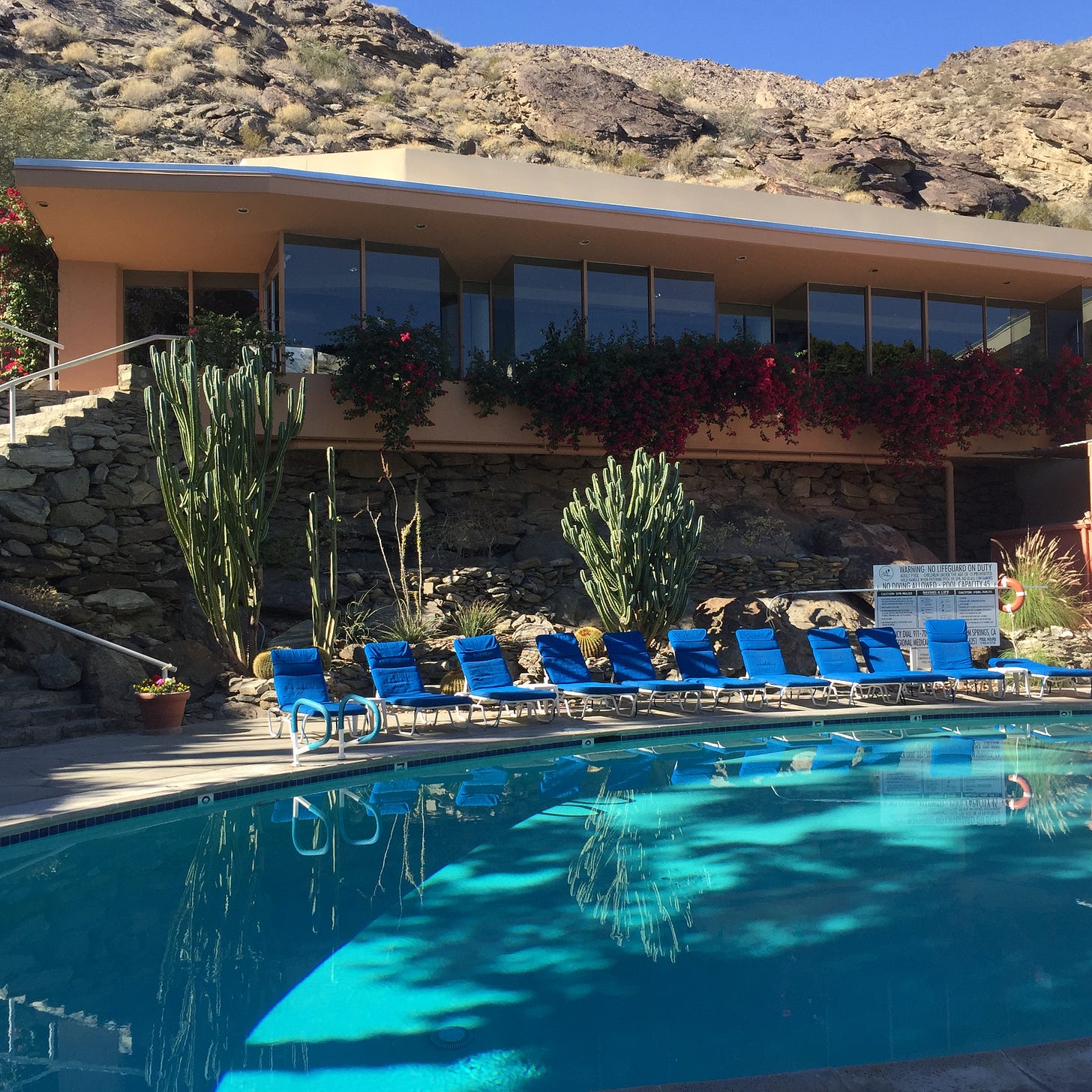


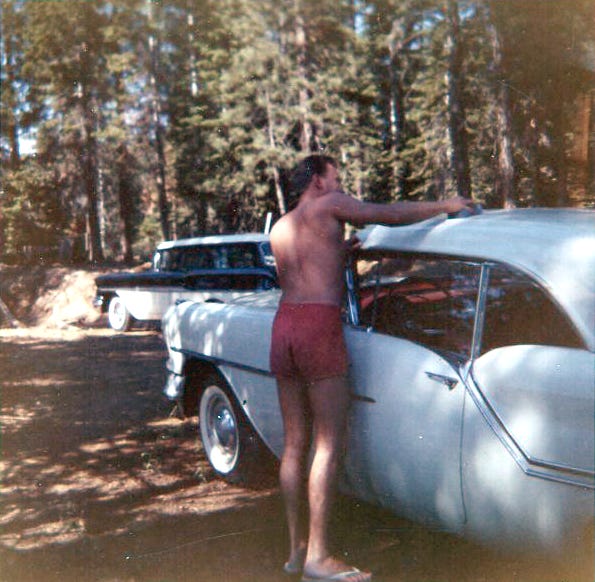
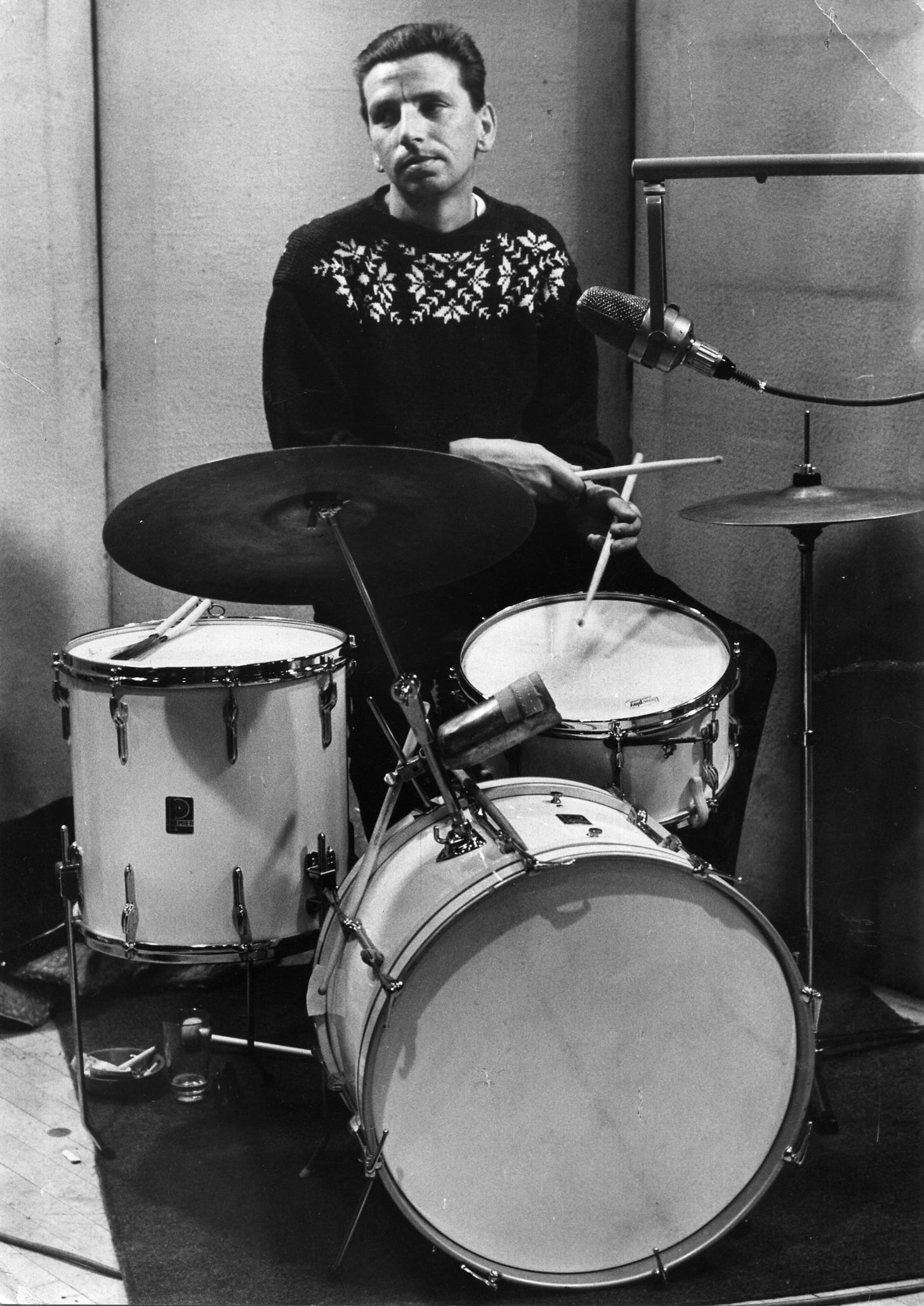
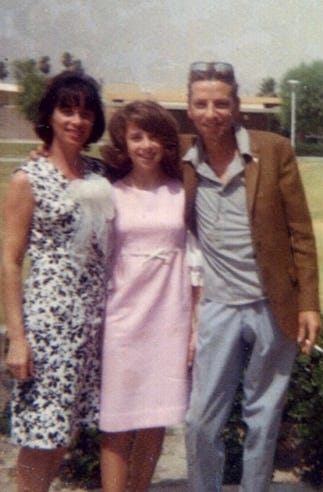



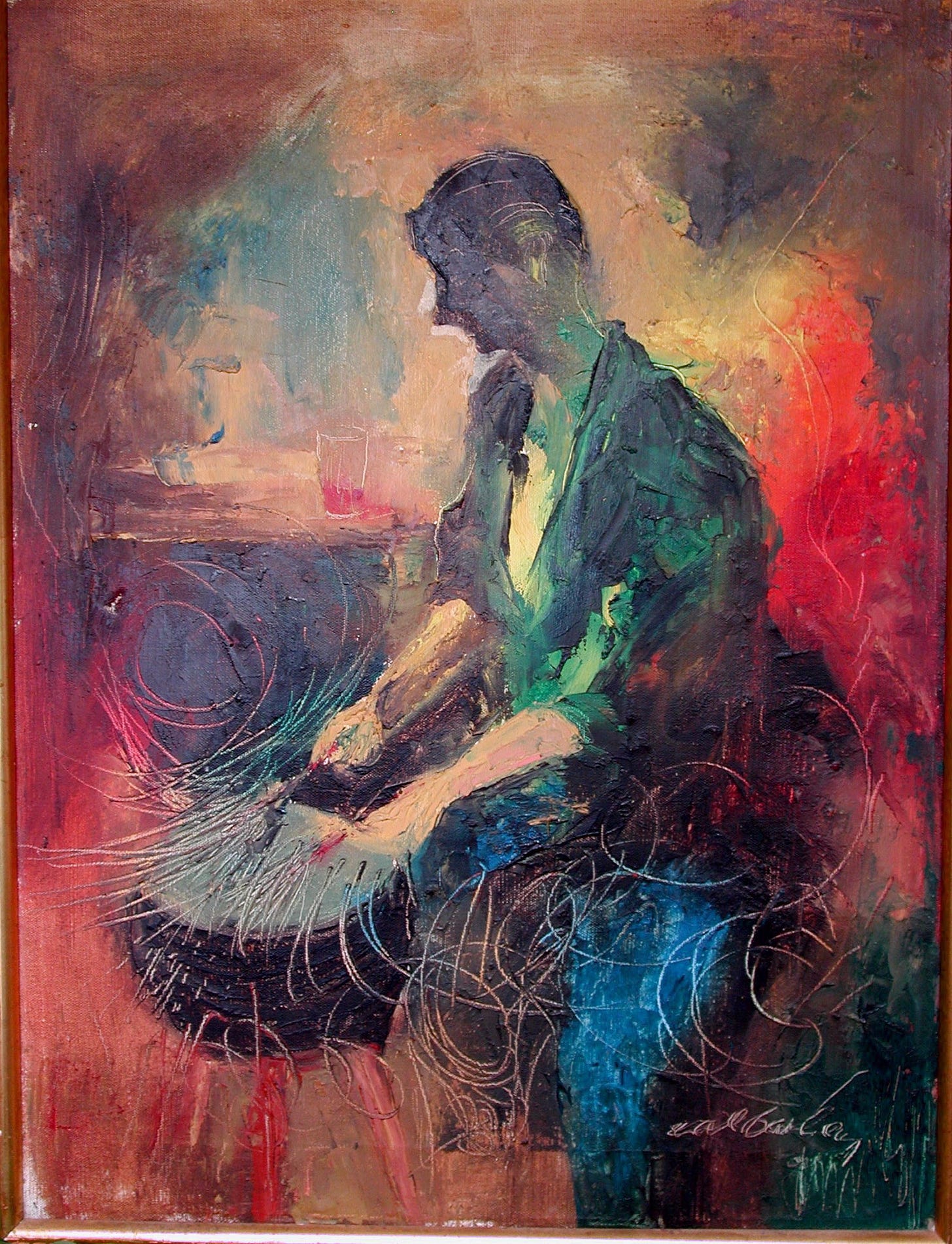
Valerie this is so amazing. The history of Palm Springs and of course the memories of my Dad and what he did best. Well it was tied up there with loving his family and of course playing piano. These are the years I remember your Dad the most. I was a teenager and I often went to the ranch or other meetings with my Dad. The picture I sent you from my wedding with our dads clearly shows how healthy Uffe looked. Thanks again for doing this ❤️